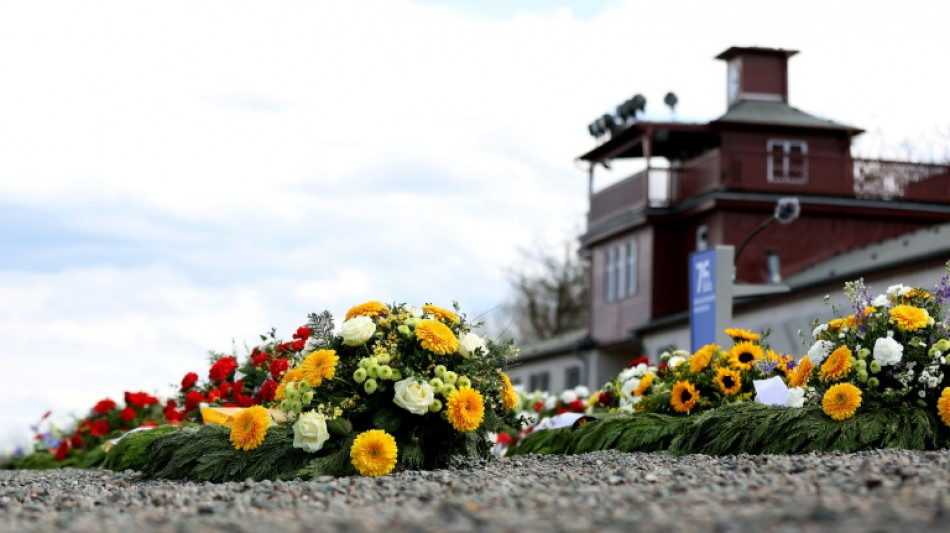

Nazi camp memorial says Russian officials unwelcome at ceremony
The memorial at the former Nazi concentration camp Buchenwald said Tuesday that "official representatives" of Russia and Belarus were not invited to ceremonies marking the 77th anniversary of its liberation next month.
The war in Ukraine is overshadowing the commemoration, "in particular the violent death of Boris Romantschenko", a camp survivor who was killed by Russian shelling that struck his flat in the city of Kharkiv, the Buchenwald and Mittelbau-Dora Memorials Foundation said.
"Official representatives of Russia and Belarus are not welcome at the ceremonies this year," the Foundation said in a statement, adding that the two countries' embassies in Berlin had been informed of the decision.
It said that the ceremony on April 10 would pay special tribute to Romantschenko, a prisoner of four different Nazi camps during World War II who was killed at his home on March 18.
Romantschenko, who died aged 96, worked for decades to educate others about the horrors of the Nazi era and had been vice president of the Buchenwald-Dora International Committee survivors group.
At the Buchenwald liberation anniversary ceremony in 2015, he had called for a struggle to create a "world of peace and freedom".
The Foundation said that rather than including officials from Russia or Belarus, it would invite representatives of Ukrainian and Russian "civil society" to pay tribute to camp victims from the former Soviet Union.
Fifteen survivors from Germany, Canada, France, Israel, Poland, Romania, Switzerland, Hungary and the United States are also expected to attend the event, cancelled the last two years due to the pandemic.
- Food donations -
The Foundation noted that 30 German remembrance groups had founded an aid network to assist survivors of Nazi persecution in Ukraine, given that many were in "existential danger" in the face of the Russian invasion.
It plans to deliver donations of food and medicine and offer practical help to survivors fleeing Ukraine by picking them up from the Ukrainian border or finding them accommodation in Germany.
There are still some 42,000 survivors of Nazi crimes living in Ukraine, according to the aid network.
More than 76,000 men, women and children died at Buchenwald and the Mittelbau-Dora satellite camp during World War II. They were either killed by the Nazis or perished through illness, cold or starvation.
Thousands of Jews were among the dead, but also Roma and Sinti, and political opponents of the Nazis, gays and Soviet prisoners of war.
US forces liberated the camp in 1945.
W.Prendergast--NG



